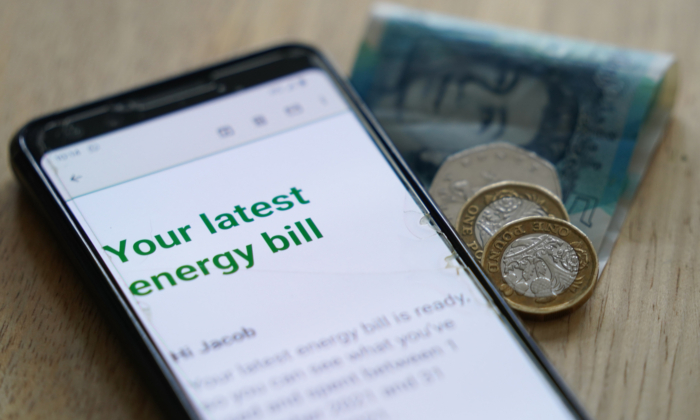Energy bill prices set to increase by 1.2% after Ofgem raises price cap
The energy regulator is encouraging consumers to ‘shop around’ for the best deal this winter to save money.
This increase will see the average household bill go up by approximately £1.75 per month, from £1,717 to £1,738 per year.
The price adjustment will be effective from January and will cover until the end of March 2025.
Despite acknowledging the stability of the price cap, Ofgem stated that it will pose a challenge for many households.
Tim Jarvis, the director general of markets at Ofgem, commented on the factors leading to the price hike, stating: “Our reliance on volatile international markets, influenced by events in Russia and the Middle East, means that energy costs will continue to fluctuate.
“Therefore, it is crucial to focus on developing a renewable, domestic energy system to reduce costs and provide households with stability.
“In the short term though, anyone struggling with bills should speak to their supplier to make sure they’re getting the help they need and look around to make sure they’re on the best, most affordable deal for them.”
The regulator advised consumers to “shop around” for the best tariffs available to mitigate the impact of the price increase. By switching to cheaper fixed deals, households could save up to £140.
Ofgem also suggested that customers review their payment methods for energy bills. It mentioned that paying via standard credit payments or post-usage is more expensive, especially during colder winter months.
“Customers could save £100 by simply switching from standard credit payments to Direct Debit payments or smart prepayment meters, which remain the most cost-effective way to pay for energy,” said Ofgem.
‘Worst Possible Time’
Energy Secretary Ed Miliband noted that the energy price cap increase will be concerning for consumers facing cost-of-living pressures.
“That’s why the Government is committed to assisting people in need.
“We are taking measures to insulate homes, offering the Warm Home Discount to three million families, promoting higher pension credit uptake, and collaborating with suppliers to provide support to vulnerable customers,” he explained.
Miliband recognized Britain’s vulnerability to global market impacts and emphasized shifting to clean energy as the way to achieve control over energy costs and increase security.
“That’s why we are swiftly pursuing this mission to provide families with the energy security they deserve. Every wind turbine and solar panel installation, every home insulation effort will contribute to safeguarding consumers and lowering bills in the long run,” Miliband added.
Labour leader Keir Starmer asserted that addressing the economy and enhancing public service provisions is a crucial step.





